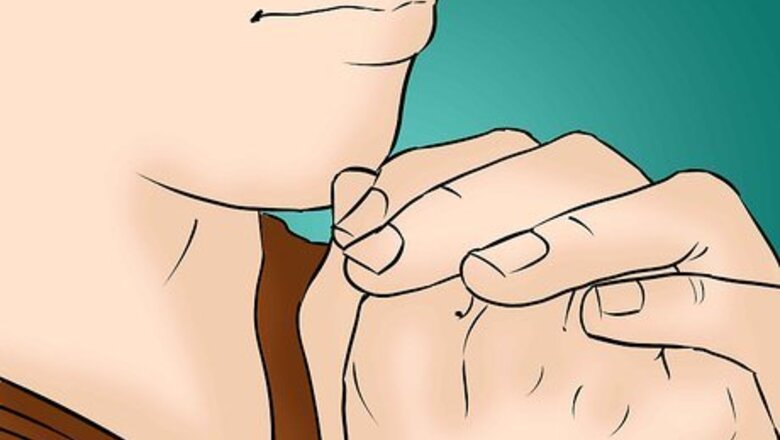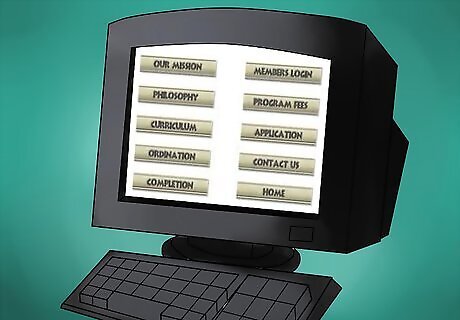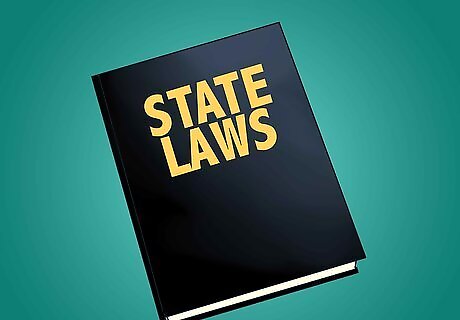
views
Taking the Traditional Path to Ordination

Have a calling. Traditionally, ordained Christian ministers have felt a strong pull to become spiritual leaders. They are members of a particular Christian sect or church and believe that they are meant to serve their communities in the name of God. Services performed by ordained Christian ministers include: Performing baptisms.Be an Ordained Minister Step 1Bullet1 Version 2.jpg Officiating weddings and funerals.Be an Ordained Minister Step 1Bullet2 Version 2.jpg Providing spiritual counseling.Be an Ordained Minister Step 1Bullet3 Version 2.jpg Working as chaplains.Be an Ordained Minister Step 1Bullet4 Version 2.jpg Working as missionaries.Be an Ordained Minister Step 1Bullet5 Version 2.jpg Founding new churches.Be an Ordained Minister Step 1Bullet6 Version 2.jpg

Have a college degree. Traditionally-ordained ministers obtain their licenses through bible or seminary schools, which are effectively graduate programs. Like most graduate programs, entrance into theological programs requires a college degree.

Apply to bible school or seminary. Depending on the program, candidates will take courses in theology, philosophy, and other courses meant to provide preparation for a life devoted to religious service. A Master of Divinity degree is awarded at the end of the program. Becoming ordained as a minister through school was the most common path before online ordination became possible. Receiving ordination through school can take several years, and it can be quite expensive. In some cases, a church or religious community will sponsor a member who feels called to ministry.

Receive your ordained minister license. At the completion of the theological program, an ordained minister license will be granted. This grants you the legal ability to perform marriage ceremonies and other services that fall under the purview of ordained ministers.

Become a minister at a particular church. Churches perform their own ordination ceremonies after an application process has been completed. In most cases candidates will be expected to attend additional classes and undergo a presentation and interview process before ordination is granted by church officials. Ordination with a particular church typically means that the church will employ you for your services. In addition to conducting religious ceremonies, ministers affiliated with churches usually actively serve their communities by visiting the sick, holding educational programs, leading church trips and so on.
Getting Ordained Online

Have a purpose. People of all religious beliefs and levels of education are free to become ordained ministers. Most people pursue online ordination with a specific purpose in mind, such as an invitation to officiate a friend's wedding or preside over a funeral.

Find an organization that provides online ordination. There are hundreds of organizations to choose from, some religious, some not. The Universal Life Church, founded in the fifties, is one of the oldest and most popular sources of online ordained minister licenses. The Celebrant Foundation and Institute is a nonreligious organization has potential ministers take online classes on how to create a personal, meaningful wedding ceremony before they are granted ordained minister licenses.

Apply for ordination. Most online ordination applications are short and simple, and they're usually free. Expect to submit the following information: Your name, address, and email address. An optional reason for pursuing ordination. In some cases you may mail a written request for ordination to the address provided.

Wait for your ordination application to be approved. Your application will be reviewed by the organization, and you will receive an email if it is approved. Some organizations will send you an ordination certificate and handbook. Some organizations offer special packages with additional certificates and accessories.
Using your Ordained Minister License

Know your state laws. In some states, ordained ministers performing a wedding are required to file a copy of their credentials with the state or with the county clerk issuing the marriage license, you could also be asked to submit letters of approval or fulfill other requirements.

Perform ceremonies. Whether you're officiating a wedding or performing a funeral, make sure you know exactly what your role in the process should be, both legally and in your role as a spiritual or celebratory guide. If you don't sign the marriage certificate or fulfill other legal requirements, the marriage may be void.

















Comments
0 comment